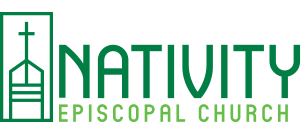I intentionally sat in the back so I could have a wide angle view. There was lots of muted chatter as the room filled with a growing sense of anticipation. A wave of applause erupted as the new leader emerged and walked directly to the podium. “Thank you all very much. Well, clearly there is a ‘new sheriff’ in town.” The crowd responded with minimal laughter as he continued, “While I may not be the sheriff, I am your new boss and you need to know I plan to make sweeping changes immediately.” And with that one statement the vibe of the room went from hopeful anticipation to fearful anxiety.
As for me, all I could do was shake my head. My role in this unfolding scenario was that of leadership coach. I had worked with the organization and the new individual during the leadership transition and all parties were feeling very good about the fit, yet in this moment it was clear the wheels had just gone off the track. All I could hear in my head was the then Secretary of State, Al Haig, after the assassination attempt of President Reagan, “I’m in control here!”
Power is such a fascinating dynamic. It is absolutely pervasive across all cultures and contexts. Families, friends, neighbors, places of work, politics and our communities of faith all have wide manifestation of power. And while we erroneously assume those in specific positions or roles are the only ones who have power, the fact is each of us possesses power. The Diamond Leadership blog on “Using Your Power For Good” describes it this way:
“In talking to people about power, I’ve found that one of the most challenging things is to get others to recognize their power. Pointing out someone else’s power? Easy. Practically an automatic reflex. But pointing to our own power? “What power?” people ask. “I don’t have any power.” It’s just so much easier to recognize other people’s power than it is to see our own…possible explanation is that we tend to conceptualize power relations hierarchically, like a ladder. And on a ladder, there is always someone above us.You climb a ladder with your head up, looking at the feet of the person above you, and all the people above them. And it’s easy to forget that someone else is a rung beneath you, studiously focused on your feet. And by thinking in terms of hierarchies, we almost always focus on positional or social identity power. But in fact, some of the most widely suffered power dynamics, as well as the greatest acts of power, have nothing to do with position or social identity….But it all starts with realizing that, yes, we all have power and then learning to recognize what they are. When we fail to recognize our powers, we fail to see the impact our own behavior has on others. We don’t see that we always have at least some kind of power that can make a difference, whether we use it or not.”
The first step is to identify and own that each of us, regardless of whether it is positional or personal, has power. The next step is to engage in intentional introspective work on how we will navigate our power. The “new sheriff” clearly was claiming their new found positional power, and articulating unequivocally how they intended to use their power to make “sweeping changes” (none of which had been discussed with others). Herein lies an example of the inherent tragedy that can happen when an individual becomes aware of their power – they use it for their own benefit. However, every other person in that room also has power. Each of us had the capacity to use our own power, both positional and personal, in our response to how the new leader chose to execute their new positional power.
In my opinion, it is critical to reflect on what is the genesis of our power. Fundamentally I believe each of us is uniquely created and each uniquely gifted – power comes from our soul not our position. And as such, how is my soul calling me to use my power? In my experience if we use – or more specially share – our power for others, all of us will benefit, dare I say be transformed.
Source: Bishop Brian Prior – Power
